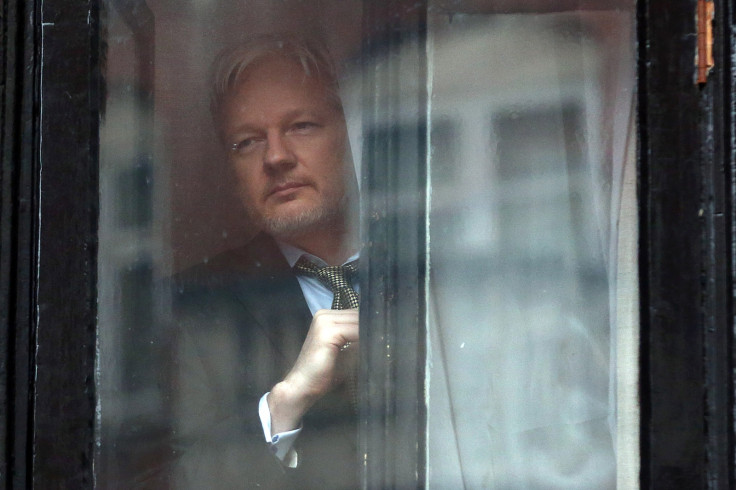Julian Assange says CIA chief prefers 'war on free speech' to fighting real enemies
CIA director Pompeo has called WikiLeaks a "non-state hostile intelligence service".

Julian Assange, the founder of WikiLeaks, has spoken out about his ongoing clash with the CIA, claiming its director, Mike Pompeo, has chosen to "declare war on free speech" rather than focus on the nation's real enemies.
"When the director of the CIA, an unelected public servant, publicly demonises a publisher such as WikiLeaks as a 'fraud,' 'coward' and 'enemy', it puts all journalists on notice, or should," Assange wrote in The Washington Post this week (25 April).
On 14 April, in his first speech as director, Pompeo hit out at WikiLeaks and described it as a "non-state hostile intelligence service" – despite previously appearing to support its publications. Last year, President Donald Trump publicly declared: "I love WikiLeaks!"
"In Pompeo's worldview, telling the truth about the administration can be a crime," Assange said.
His comments came after his website published a series of leaks under the title "Vault 7", containing information about the secretive agency's so-called 'cyberweapons'.
As reported, leaked documents detail the CIA's alleged hacking tools seemingly used to break into smartphones, smart TVs and operating systems. The WikiLeaks founder has teased the files likely came from inside a cyber unit based in Langley, Virginia.
"Pompeo liked WikiLeaks when he perceived it was publishing material revealing the shortcomings of his political rivals," Assange wrote.
"It was only when our publications touched Pompeo's rice bowl that WikiLeaks became his target," he continued, adding: "You don't get to love the truth one day and seek its suppression and the incarceration of its publisher the next."
Indeed, recent calls for Assange's detention were met with derision from a slew of activists and journalists amid claims it would set a "dangerous precedent".
Assange said his arrest, which US attorney general Jeff Sessions dubbed a "priority", would impact all serious news and investigative human rights organisations.
"The logic that WikiLeaks, or these organisations, are somehow 'intelligence agencies' would be as absurd as the suggestion that the CIA is a media outlet," he wrote.
"Both journalists and intelligence agencies cultivate and protect sources, collect information and write reports, but the similarities end there," he added. "The world cannot afford [...] a muzzle placed on the work [...] to inform the American and global public."
Last year, as Trump and Hillary Clinton battled in public, WikiLeaks was busy publishing tens of thousands of documents. They included headline-grabbing emails from the Democratic National Committee (DNC) and the inbox of political player John Podesta.
The source of the leaks remains unknown, however US intelligence believes they were obtained by hackers working on behalf of Russian intelligence - a charge both Assange and the Russian government have repeatedly denied.
In a separate opinion piece from earlier this month (11 April), Assange said his motive of publishing newsworthy material was "identical" to that of the New York Times and The Washington Post. "We publish material that we can confirm to be true," he asserted.
The WikiLeaks founder remains in the Ecuadorian embassy in London, where he has lived under political asylum since 2012. He is currently wanted in Sweden over a longstanding rape allegation and denies all accusations made against him.
© Copyright IBTimes 2024. All rights reserved.






